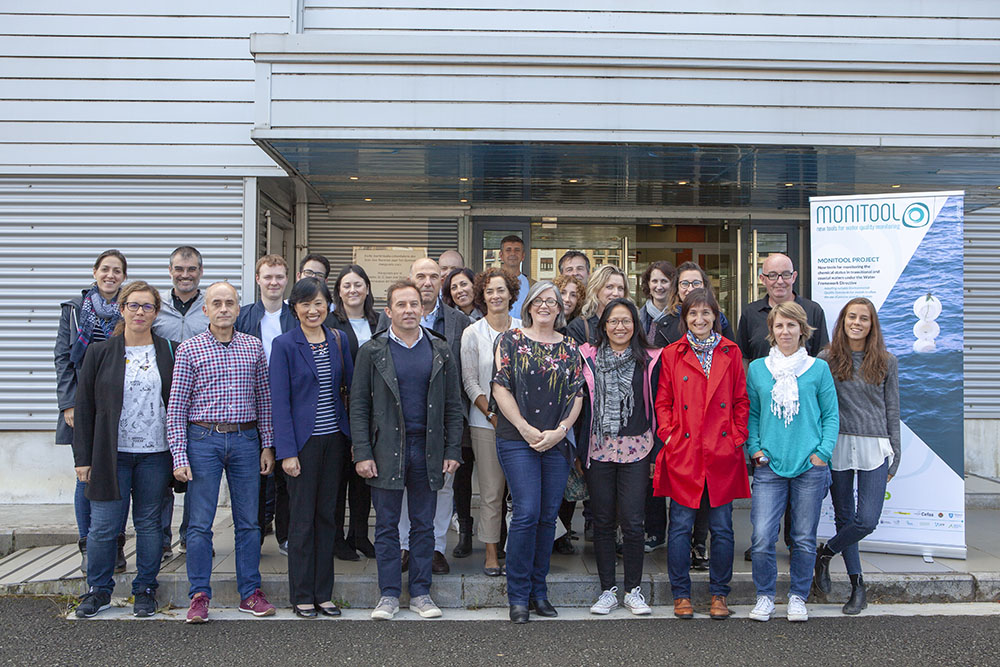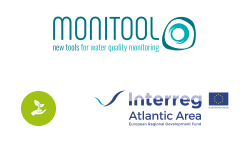 MONITOOL partners discuss project´s first results in AZTI, San Sebastián
MONITOOL partners discuss project´s first results in AZTI, San Sebastián
3rd MONITOOL Partners meeting, celebrated in San Sebastián last week, gave the participants the opportunity to discuss in depth the wet season sampling campaign results.
San Sebastián, Spain, hosted the third meeting between MONITOOL project partners. During this two-day event, 9 -10 October 2018, the participants talked about the first metal results of the wet-season sampling campaign. Associated partners were also present, as main stakeholders and end-users of the project´s results.
The MONITOOL project objective is to provide a robust database of dissolved and labile metal concentrations in transitional and coastal waters for adapting the existing water Environmental Quality Standards (EQS; 0.45 μm filtered) for Diffusive Gradients in Thin-films (DGT) passive sampling devices (EQS-DGT) in order to improve and facilitate the chemical status assessment of waters under the Water Framework Directive (WFD). To fulfil this goal, and following protocols developed in the framework of the MONITOOL project, two sampling campaigns have been carried out by all partners, consisting in the deployment of DGTs and simultaneous water spot sampling, with subsequent metal analysis.
During this 3rd meeting, under the coordination of CEFAS (Centre for Environment, Fisheries and Aquaculture Science, UK), the results for the first sampling campaign (230 water samples and 150 deployed DGTs) were presented. A comparison between the results of the three metal analysis techniques (dissolved metals in water samples by SeaFast ICP-MS; labile metal fraction in water samples by Voltammetry; and labile metal captured on DGTs by ICP-MS) were addressed and discussed in depth, metal by metal and location by location, along the whole European Atlantic Area and Sardinia in the Mediterranean.
Concerning the second sampling campaign (dry conditions) which was finished last September, each partner provided a detailed presentation of how they were developed in each region.
Once the water samples and DGTs metal analysis of the dry season campaign samples are ready, statistical analysis of all project results will be completed using the database generated and presented by AZTI (Spain), in order to relate metal concentrations in DGTs with spot water samples.
We are delighted that Prof. Hao Zhang (Lancaster University, UK) and Prof. Gary Fones (University of Portsmouth, UK) have joined the MONITOOL scientific advisory board. Prof. Zhang coordinated the scientific discussion during the meeting as a member of this board. Her vast experience with DGTs and her high interest in collaborating on MONITOOL project were essential to generate an interesting debate session and solid conclusions.
Other aspects that were discussed during the meeting included: interlaboratory exercise planning, organised by IFREMER (Institut Français de Recherche pour l'Exploitation de la Mer); identification of blocking points that prevent the use of DGT in a regulatory context (WFD) and solutions considered to overcome them (WP6 - IFREMER); preliminary results of biofouling analysis on deployed DGTs by DCU (Dublin City University, Ireland); the project´s work packages progress; future events attendance and scientific publications, among others.
The meeting ended with a guided tour of AZTI facilities, informing the participants about all the work being done in different projects.
The next project meeting is scheduled for the spring of 2019 in Gran Canaria (Spain) and hosted under the organization of Instituto Tecnológico de Canarias (ITC).



